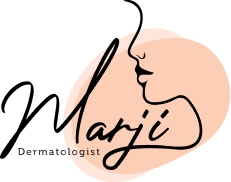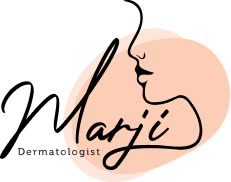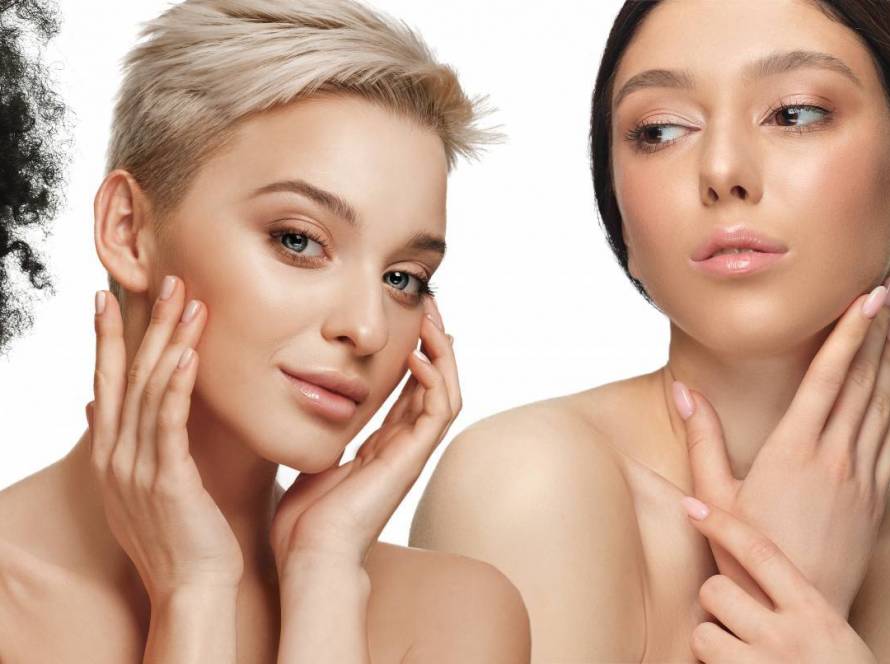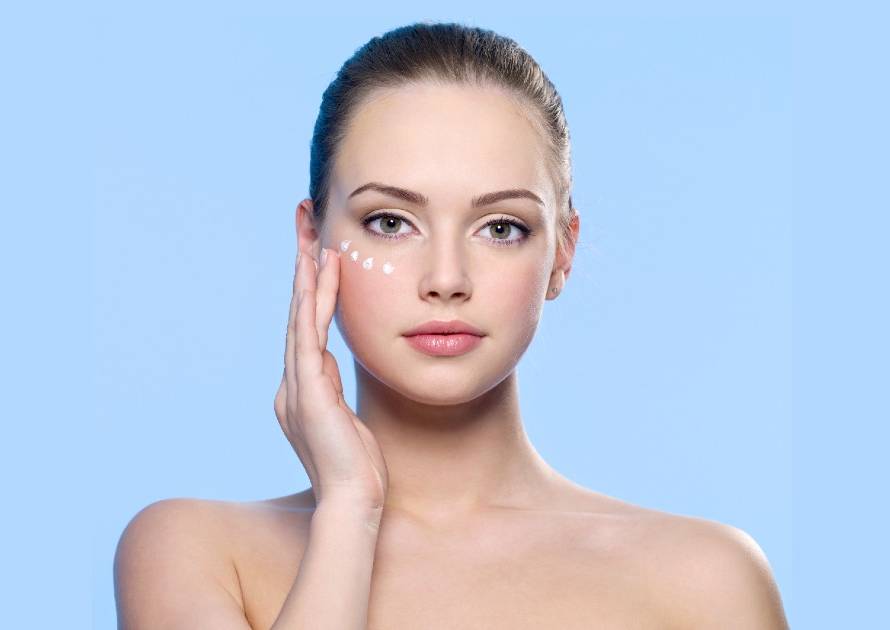A lot of people have been increasingly noticing skin problems occurring nowadays, from acne to pigmentation and early aging signs like wrinkles and fine lines. The causes for skin damage that leads to skin issues can be caused by pollution, exposure to sunlight, hormonal imbalances, and frequently wearing a mask.
Everyone desires healthy, glowing, and problem-free skin, but few people know how to achieve that. In this article, we share with you the best tips and pieces of advice that our dermatologist, Dr. Maha Marji, recommends for a healthy, glowing, and fresh-looking skin full.
This article will solely focus on the benefits of using retinoid creams, how to use them, and how much of it should be used.
What Are Retinoids?
Retinoids are a class of chemical compounds that are naturally occurring vitamin A (retinol) or synthetic substances that are chemically related to it. Retinoids have been used in medicine to regulate epithelial cell growth. Additionally, Retinoids are one of the best types of creams to be added to your skincare routine.
Benefits of Retinoids
There are many benefits to using retinoids, and a lot of them don’t take much time to become visible after you add retinoid creams to your skincare routine. Here are some of the most common benefits of using retinoids:
Treatment of acne
Retinoids are able to control several factors that cause acne to break out. Some of these factors include oil production and inflammation. It can prevent future breakouts by preventing dead skin cells from clogging your pores.
Helps improve hyperpigmentation
Using a retinol product at night might help with hyperpigmentation. Retinoids cause your skin cells to turn over, which begins the process of removing the pigmented cells that are there. This way, the old pigmented cells peel off, and new cells have the chance to grow in their place.
Decrease photo-aging
Retinoids decrease photo-aging due to high cells turnover and continuous rejuvenation. It can also stimulate collagen production within the skin, which gives it a younger, more elastic, and smoother look.
Treatment of psoriasis
Topical retinoids have shown that they can help treat mild to moderate plaque psoriasis by reducing the formation of patches of raised skin which allows the patient to get rid of the psoriasis patches faster.
Treatment of skin cancer (T cell lymphoma and Kaposi sarcoma)
Certain types of retinoids are used to treat certain types of skin cancer.
Examples of Retinoids that Are Available in the Market
You can find retinoids in the form of medicines and topical creams in drug stores. Examples of retinoids that can be found in the market include:
- Tretinoin (acretin).
- Adapalene (surecure, differin).
Limiting Factors and Contraindications of Retinoids
Although retinoid creams are fairly safe to use, there are some things that you need to be aware of before using retinoids on your skin. Here are the limiting factors of using retinoids:
- Irritation of the skin: If irritation occurs when you apply retinoids on your skin, you need to immediately stop applying them until you consult a doctor.
- Pregnancy: Although the amount absorbed by topical use is limited, the medication should not be used during pregnancy to avoid any risk of fetal anomalies.
The Best Way to Use Retinoid Creams
In order to get the best result possible using a retinoid cream, you need to properly use and apply it to your skin. Here are the doctor’s instructions on the best way to use retinoid creams:
- First, you need to wash your face with your usual cleanser.
- After that, add your daily moisturizer, and then apply retinoids. These first two steps are important as adding them to a clean, moisturized skin increases its efficacy and decreases the side effects.
- Start using retinoids gradually. Most irritation happens when initiating usage, so in order for you to avoid irritation, introduce retinoids to your skin gradually. Start by using the product every other day, or increase the number of hours gradually every day.
- You should make it your priority to put retinoids at night and wash them first thing in the morning.
- If any irritation happens (redness or excessive dryness), stop using retinoids for a few days, then restart after your skin calms down.
- If this irritation continues to happen too frequently, consult your doctor.
- To avoid the synergetic irritation effect, your skincare routine while using retinoids should not have any other agents that cause peeling and irritation like vitamin C or peeling acids.
- Don’t forget to use moisturizer and sunblock regularly.
Frequently Asked Questions About Retinoids (FAQs)
This section aims to shed light on the most commonly and frequently asked questions regarding retinoids and their uses.
How long can you use retinoids for?
You can use retinoids for many months each year, and they will not be harmful to your skin.
When will I start seeing the results of the retinoids?
You’ll start noticing the results of retinoids one month into using the products daily regularly.
Can I use retinoids during pregnancy?
No, if you are pregnant or planning to get pregnant, do not use retinoids. However, if you were already using them and you got pregnant, all you need to do is just stop using them, and there’s no need for further measures.
Can all skin types use retinoids?
Yes, any skin type can use retinoids. However, fair or sensitive skin types should be extra careful as it can be harder for them to adjust to the ingredient of retinoids. It is not recommended to use retinoids for people who have eczema or severely dry skin or active dermatological disease like infections.
When should I start using retinoids?
We typically recommend her clients to start using retinoids when they are in their teenage years, as that is when collagen levels in the skin start decreasing more rapidly. But all ages can benefit from the advantages of a retinoid-infused beauty routine.
How often should you apply your retinoid creams?
It is recommended to start out by applying a retinol one to two nights per week to build up your skin’s tolerance. Then, increase your frequency to every other night, as you can tolerate it. The goal is to eventually train your skin to use it nightly.
Shall I apply retinoids all over my face?
It is preferable to spread it all over the face, avoiding the eye area, the corner of the nose, and the corner of the mouth to avoid excessive irritation.



